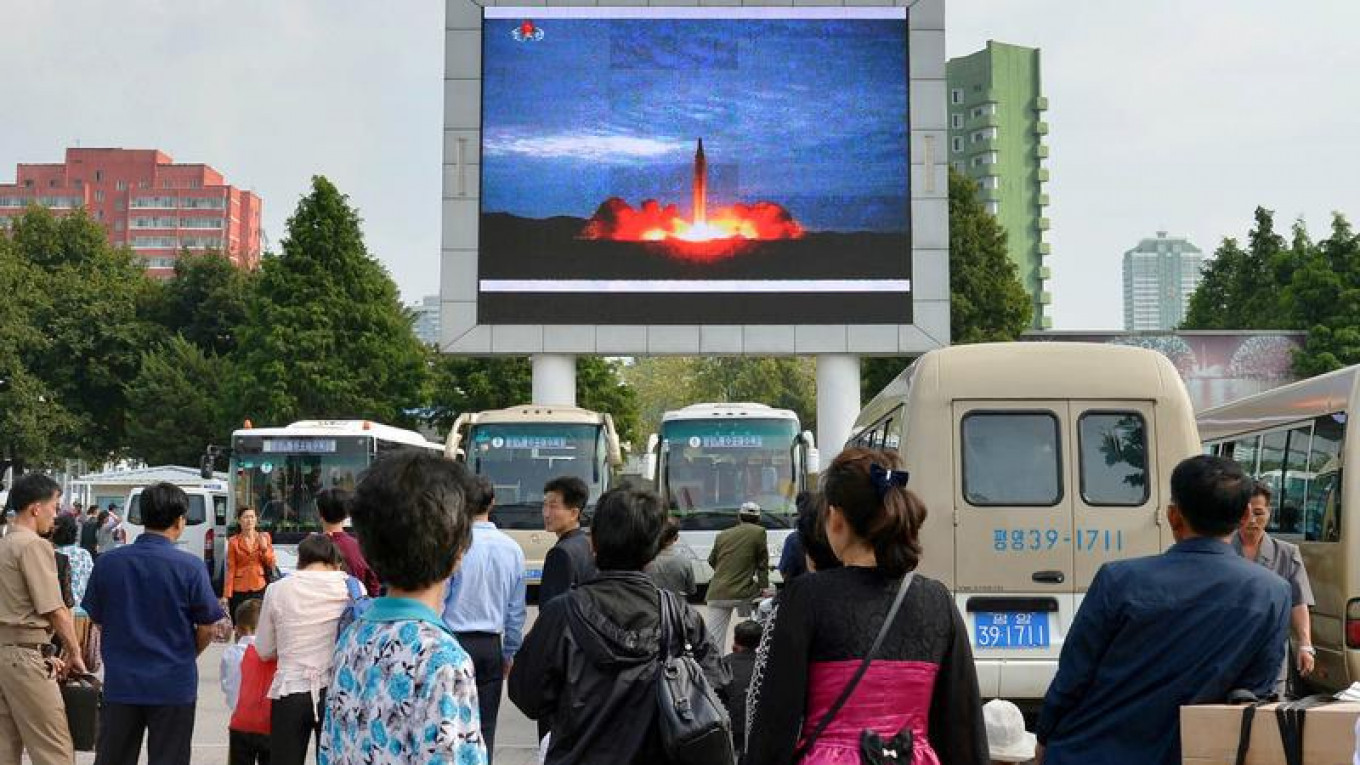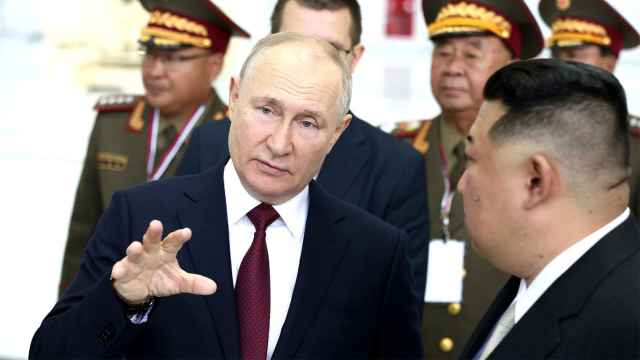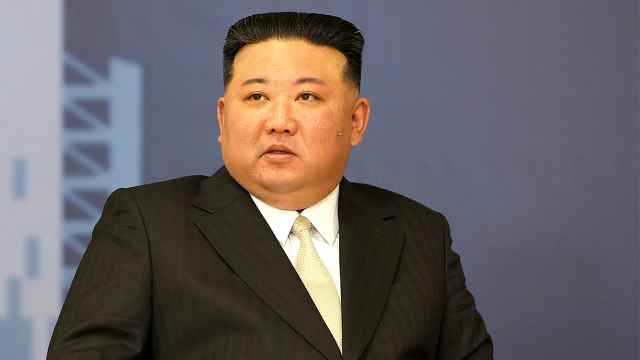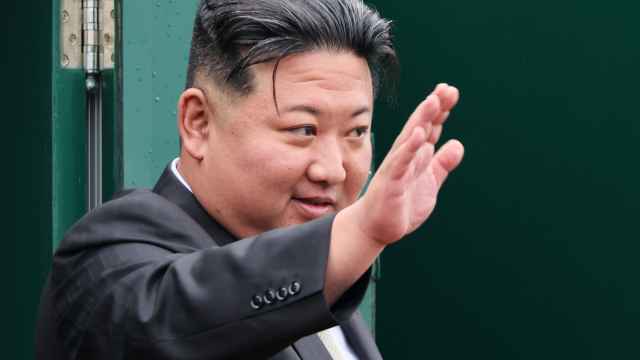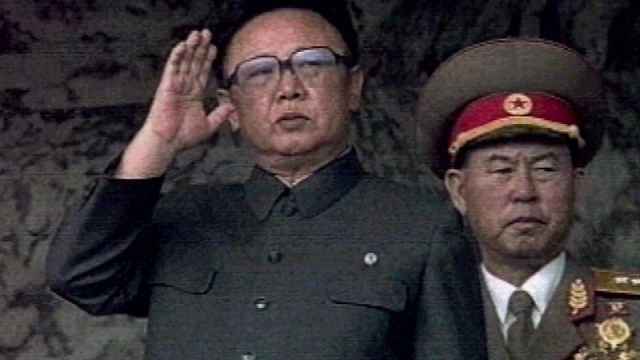The whole world is following the dramatic events unfolding around North Korea with great attention. Politicians and experts, journalists and diplomats are increasingly alarmed about the possible catastrophic consequences of the current crisis — not only for the Korean Peninsula, but for world politics in general.
Numerous statements and comments leave a depressing sense of hopelessness, a complete impasse in trying to find a solution to the problem.
On one hand, it seems that everyone — except perhaps the most irresponsible American hawks — is well aware that there can be no military solution.
On
the other hand, there seems to be no way to launch a mechanism of negotiations that
would make it possible to bring a solution to the problem into mainstream political dialogue. Some initiatives are being put forward, but so far they have failed to reduce tensions.
Is the situation that hopeless? Russian President Vladimir Putin wrote in his recent article: “...the policy of putting pressure on Pyongyang to stop its nuclear missile program is misguided and futile. The problems of the region should only be settled through a direct dialogue of all the parties concerned without any preconditions. Provocations, pressure, and militarist insulting rhetoric are a dead-end road.”
This conclusion is based both on the political experience of negotiations on Iran’s nuclear program and on direct negotiations with North Korea, that were actively held in the early 2000s. I had an opportunity to take part in them.
In the late 1990s the situation around North Korea was also heated and there was more than one crisis. Meanwhile, the leader of the country, Kim Jong-il, was not the best negotiator on nuclear issues.
Like now, there were hotheads in Washington calling for a “military solution” to the North Korean nuclear issue. But at that time, the leaders of the great powers had the political will, endurance, and patience to seek political compromise.
Russia took the lead — in February 2000, the Treaty on Friendship, Good-Neighborliness and Cooperation between Russia and North Korea was signed in Pyongyang.
In July 2000, on the explicit invitation of Kim Jong-il — an unprecedented event — Putin paid an official visit to North Korea. The two leaders held lengthy negotiations on a wide range of international issues, including, of course, the nuclear issue.
From Pyongyang, the Russian president went to Okinawa, Japan, to participate in G8 Summit, where, with firsthand information, he was a keynote speaker in discussions on the Korean issue.
The Russian example caught up fast. Foreign emissaries started visiting Pyongyang and the inter-Korean dialogue intensified. In October 2000, U.S. Secretary of State M. Albright visited North Korea to meet with Kim Jong-il, and, among other issues, discussed the possible visit of the U.S. President Bill Clinton to Pyongyang.
The mechanism of Six-Party Talks on the ways to resolve the crisis around the North Korean nuclear program — with Russia, China, the United States, Japan, South Korea and the involvement of North Korea — was successfully launched. In the course of several rounds of negotiations, the parties discussed specific conditions for ensuring the non-nuclear status of the Korean peninsula.
Unfortunately, the new administration led by President George W. Bush which took office in the United States in early 2001 put an end to these positive efforts of the international community. The issue was stymied again. We are now all watching with frustration what this has led to.
I want to emphasize that there is no simple solution to the North Korean nuclear issue but threats and sanctions will not help resolve it.
The main efforts of the international community should now be directed at the immediate start of a direct dialogue with Pyongyang on a whole range of issues related to ensuring regional security, including, of course, the establishment of nuclear-free status of the Korean peninsula.
There is a history of constructive interaction with the North Korean leadership. Russia and China have come forward with a joint initiative to resolve the issues of the Korean peninsula, including the nuclear issue, for the sake of lasting peace and stability in northeast Asia.
This initiative might become a good basis for the start of negotiations with the Korean leader Kim Jong-un. The Six-Party Talks negotiation format also already exists and it can be updated if need be.
Those who reason that the North Korean nuclear issue does not have a political solution, actually don’t have the desire to seek one or work on its implementation. As the old German proverb goes: “Where there is a will, there is a way."
.......................................................................................................................................................................................
Igor Ivanov is President of the Russian International Affairs Council (RIAC). He was Russia's Foreign Minister from 1998 to 2004.
The views and opinions expressed in opinion pieces do not necessarily reflect the position of The Moscow Times.
A Message from The Moscow Times:
Dear readers,
We are facing unprecedented challenges. Russia's Prosecutor General's Office has designated The Moscow Times as an "undesirable" organization, criminalizing our work and putting our staff at risk of prosecution. This follows our earlier unjust labeling as a "foreign agent."
These actions are direct attempts to silence independent journalism in Russia. The authorities claim our work "discredits the decisions of the Russian leadership." We see things differently: we strive to provide accurate, unbiased reporting on Russia.
We, the journalists of The Moscow Times, refuse to be silenced. But to continue our work, we need your help.
Your support, no matter how small, makes a world of difference. If you can, please support us monthly starting from just $2. It's quick to set up, and every contribution makes a significant impact.
By supporting The Moscow Times, you're defending open, independent journalism in the face of repression. Thank you for standing with us.
Remind me later.



